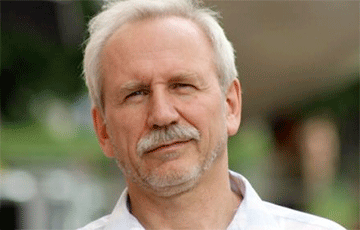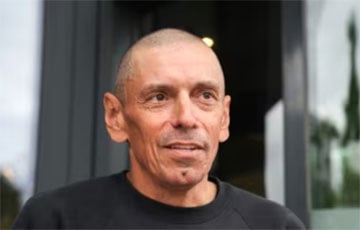Karbalevich: That Is Why Lukashenko Is More Cautious Now
6- 18.07.2025, 13:33
- 23,452

Why the dictator has been on TV more often than not.
Lukashenko has been trying to appear regularly on the information screen lately, political scientist Valery Karbalevich writes for Radye Svaboda. Sometimes it looks artificial, he argues about some trifles. It seems that the very fact of appearing in public is now more important to him than the content of his meetings, negotiations or assignments. It is important for him that everyone sees that he is in good working shape, so that no one, especially officials, think badly about his age and health, saying that Lukashenko is no longer the same. It is especially important for him now to demonstrate that everything is under his control. There was no such necessity before, everybody understood everything. But now such demonstrations have become an important element of his public positioning.
But it should be noted that his messages to the population have not changed much during 31 years of his rule: fighting prices, scolding officials, reflections on justice, etc. The generation has changed, the technological contribution has changed, the geopolitical conditions are different, and Lukashenko has been saying the same thing for three decades. It is as if time for Belarus has stopped, history has frozen at the level of the mid-1990s and is not moving forward.
In the meantime, Lukashenko has again raised the issue of combating price growth. It is strange that he raised this topic at the talks with the St. Petersburg delegation on July 14. What does it have to do with Belarus' cooperation with this Russian city? However, there is some sense here, although it is hardly noticeable. Addressing the governor of St. Petersburg Alexander Beglov, the Belarusian dictator said:
"I see that you are already trying to regulate prices not only for potatoes, but for the borsch set in general. Although we were criticized last year for regulating prices"
And then, reflecting on fairness and fair prices, he said:
"I am absolutely convinced that Russia will come to it. Our Slavic peoples - Ukraine, Belarus, Russia first of all - they will not tolerate injustice. Whether we want it or not, we will have to create this justice..."
That is, if we translate this message into an understandable language, it can be read as follows. Belarus has a fair system, Russia has an unfair one, Belarus sets an example, best practices, they take care of people here, they control prices here, Russians will be forced to recognize, accept and repeat this experience. Thus, addressing the governor of St. Petersburg, Lukashenko appeals to the Russians.
Why is Lukashenko suddenly instructing his "big brother"? This is a petty revenge on Putin, who twice teased about the potato shortage in Belarus.
Back to the issue of prices, it is worth noting that Lukashenko has been fighting them throughout his rule. But the results of this struggle are quite sad. Belarus has been among the world leaders in terms of inflation for the last 30 years.
As usual, Lukashenko's reasoning about prices is very contradictory and confusing. He says that we do not regulate prices, but only strive to make them fair. Let me remind you that on October 6, 2022 Lukashenko issued a special directive No. 10 "On the inadmissibility of price increases." At that time, dozens of criminal cases were brought against store owners where prices were inflated, arrested entrepreneurs were forced to repent on video camera, and the footage was then shown to the whole country.
The result of this campaign was a shortage of some food products, primarily potatoes, postponed inflation and bankruptcy of a number of trading firms.
That is why Lukashenko is now more cautious. On the one hand, he is indignant about the price rise, people's discontent ("I get letters every day"), and the government's "pranks". On the other hand, he says that we do not regulate prices (because the story with the missing potatoes is still fresh in our memory), but we demand "fair" prices.
The government, as usual in such cases, is at a loss, because it is not clear how to fulfill Lukashenko's demand - to set "fair" prices and at the same time avoid shortages of goods in stores.











